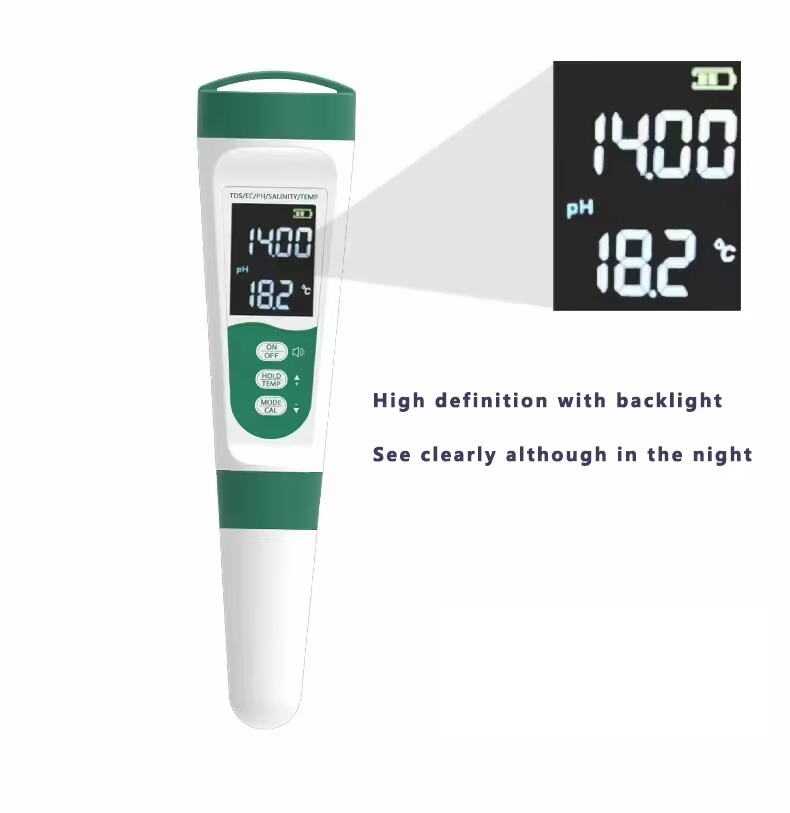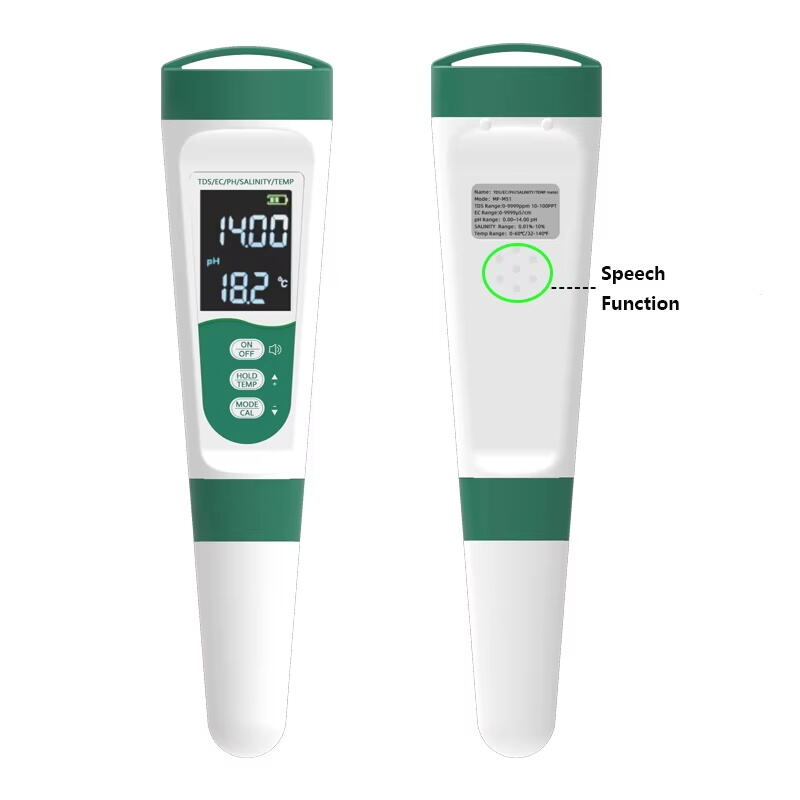Understanding Digital pH Measurement in Modern Agriculture
The agriculture and hydroponics sectors have witnessed a remarkable transformation with the introduction of digital technology, particularly through the implementation of ph meter digital devices. These precision instruments have revolutionized the way farmers and hydroponic growers monitor and maintain optimal growing conditions. By providing accurate, real-time measurements of soil and water acidity levels, digital pH meters have become indispensable tools in modern farming practices.
The evolution from traditional litmus paper testing to sophisticated digital pH measurement has enabled growers to achieve unprecedented levels of precision in their agricultural operations. This technological advancement has not only improved crop yields but has also contributed to more sustainable farming practices through efficient resource management.
Essential Features of Digital pH Meters in Agricultural Applications
Advanced Sensor Technology
Modern ph meter digital solutions incorporate state-of-the-art sensor technology that delivers highly accurate readings. These sensors utilize sensitive electrodes that can detect minute changes in hydrogen ion concentration, providing readings accurate to two or three decimal places. The advanced calibration capabilities ensure that measurements remain reliable over extended periods of use.
The durability of these sensors is particularly important in agricultural settings, where exposure to various environmental conditions and chemicals is common. Many digital pH meters now feature robust sensor designs that can withstand regular use in both soil and hydroponic applications while maintaining their accuracy.
User-Friendly Interface and Data Management
Contemporary digital pH meters come equipped with intuitive displays and user-friendly interfaces that make operation straightforward for both experienced farmers and newcomers to agriculture. The ability to store and track pH measurements over time has become a standard feature, allowing growers to monitor trends and make data-driven decisions about their crops.
Many models now include wireless connectivity options, enabling seamless integration with farm management software and mobile applications. This connectivity facilitates comprehensive record-keeping and allows for remote monitoring of pH levels across different areas of operation.
Impact on Hydroponic Systems
Precision Nutrient Management
In hydroponic systems, the ph meter digital technology plays a crucial role in maintaining the delicate balance of nutrient solutions. The ability to constantly monitor and adjust pH levels ensures that plants can effectively absorb essential nutrients. Even slight variations in pH can significantly impact nutrient availability and uptake, making precise measurement capabilities invaluable.
Digital pH meters enable growers to make immediate adjustments to their nutrient solutions, preventing potential issues before they can affect plant health. This proactive approach to nutrient management has proven particularly beneficial in commercial hydroponic operations where consistency and quality are paramount.
System Automation and Integration
Advanced digital pH meters can be integrated into automated hydroponic systems, allowing for continuous monitoring and automatic adjustment of nutrient solution pH levels. This automation reduces labor requirements while ensuring optimal growing conditions are maintained around the clock. The integration capabilities of modern pH meters have made them central components in smart farming systems.
The ability to set pH parameters and receive alerts when readings fall outside acceptable ranges has revolutionized hydroponic cultivation. Growers can now manage larger operations more efficiently while maintaining precise control over growing conditions.

Applications in Soil-Based Agriculture
Field Testing and Soil Management
Digital pH meters have transformed soil testing procedures in traditional agriculture. Their portability and rapid measurement capabilities allow farmers to conduct comprehensive soil surveys across large areas quickly and efficiently. This information is crucial for developing effective soil management strategies and determining appropriate amendments.
The accuracy of digital pH measurements helps farmers optimize fertilizer application rates and timing, leading to more efficient resource use and reduced environmental impact. Regular soil pH monitoring has become an essential practice in precision agriculture, enabling targeted interventions that improve soil health and crop productivity.
Seasonal Planning and Crop Selection
Understanding soil pH variations throughout the growing season helps farmers make informed decisions about crop selection and rotation strategies. Digital pH meters provide the detailed data needed to match crops with optimal soil conditions and plan necessary soil amendments well in advance of planting.
The historical data collected through regular pH monitoring also helps identify long-term trends in soil chemistry, enabling farmers to adapt their management practices to changing conditions. This proactive approach to soil management has proven particularly valuable in organic farming systems where maintaining proper pH is crucial for nutrient availability.
Future Developments and Trends
Artificial Intelligence Integration
The next generation of digital pH meters is likely to incorporate artificial intelligence capabilities, enabling more sophisticated analysis of pH data and predictive maintenance features. These advanced systems will be able to identify patterns and make recommendations for pH management based on historical data and growing conditions.
Machine learning algorithms will enhance the accuracy of pH measurements while also providing valuable insights into the relationship between pH levels and crop performance. This integration of AI technology promises to further optimize agricultural operations and improve yield predictions.
Enhanced Connectivity and IoT Integration
The Internet of Things (IoT) is set to revolutionize how pH data is collected, analyzed, and utilized in agricultural settings. Future digital pH meters will likely feature enhanced connectivity options, enabling seamless integration with comprehensive farm management platforms and decision support systems.
These advancements will facilitate real-time monitoring and automated responses to pH variations, further streamlining agricultural operations and improving resource efficiency. The development of standardized protocols for data sharing will also enable better collaboration between growers and agricultural researchers.
Frequently Asked Questions
How often should digital pH meters be calibrated for agricultural use?
Digital pH meters used in agriculture should be calibrated at least weekly during regular use, or before each major testing session. More frequent calibration may be necessary in hydroponic systems or when testing conditions vary significantly. Always use fresh calibration solutions and follow manufacturer guidelines for optimal accuracy.
What is the typical lifespan of a digital pH meter sensor?
A quality digital pH meter sensor typically lasts between 12-18 months with proper care and maintenance. However, this can vary depending on usage frequency, storage conditions, and the types of solutions being tested. Regular cleaning and proper storage can significantly extend sensor life.
Can digital pH meters be used for testing both soil and hydroponic solutions?
Most professional-grade digital pH meters can indeed be used for both soil and hydroponic applications, though some models may be optimized for specific uses. When testing soil, a special soil probe attachment may be necessary for accurate readings. Always verify that your chosen meter is suitable for your intended application.



